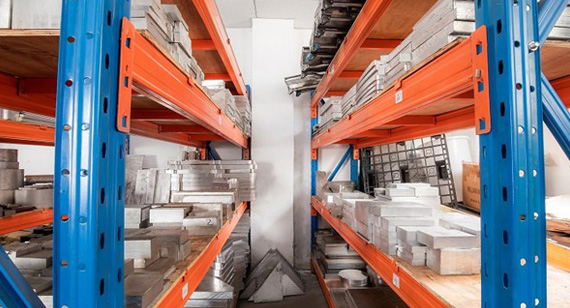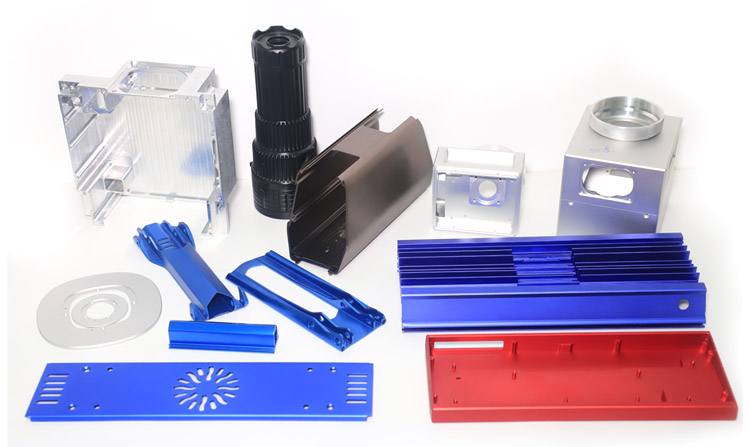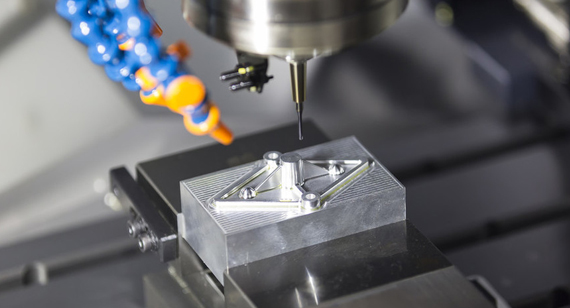15 years one-stop China custom CNC machining parts factory

Hey there I’m VMT Sam!
With 25 years of CNC machining experience we are committed to helping clients overcome 10000 complex part-processing challenges all to contribute to a better life through intelligent manufacturing. Contact us now
 441 |
Published by VMT at Jun 22 2024
441 |
Published by VMT at Jun 22 2024
In the field of CNC machining, the choice of materials is crucial for the performance, cost, and machining of products. Aluminum, as a lightweight and high-strength metal, is widely used in aerospace, automotive, electronics, and other industries. However, the question of whether aluminum possesses magnetic properties often arises. This article will delve into the scientific perspective on aluminum's magnetic properties and its applications in CNC machining.
First, we need to define what magnetism is. Magnetism refers to the ability of a substance to attract iron, nickel, cobalt, and other materials. Based on this definition, we can conclude that aluminum itself does not possess magnetic properties. Aluminum's atomic structure lacks unpaired electrons, which is one of the necessary conditions for magnetism. Therefore, aluminum typically does not exhibit magnetic behavior in everyday use.

Since aluminum itself is not magnetic, magnets cannot attract aluminum. Magnets primarily consist of iron, cobalt, nickel, and other atoms with special internal structures that inherently possess magnetic moments. Magnets generate a magnetic field capable of attracting ferromagnetic materials such as iron, nickel, and cobalt. However, since aluminum is not a ferromagnetic material, magnets cannot attract it.
The reason aluminum is not magnetic mainly lies in its atomic structure. Aluminum's atomic structure does not contain unpaired electrons, preventing the formation of magnetic moments, thus rendering it non-magnetic. Additionally, aluminum's excellent electrical and thermal conductivity makes it less likely to become magnetized in a magnetic field.
Although aluminum itself is non-magnetic, it does not mean that other materials cannot adhere to it. In fact, aluminum can bond with various materials such as wood, plastic, and rubber. When choosing adhesives, it is important to consider the properties of both aluminum and the bonding material to ensure strong and durable adhesion. For instance, for bonding aluminum and wood, adhesives like neoprene, structural adhesives, or AB glue can be used. These adhesives provide strong bonding and good weather resistance, meeting various needs.
Based on the above analysis, we can clearly state that aluminum is non-magnetic. Aluminum's atomic structure lacks unpaired electrons, preventing the formation of magnetic moments and thus making it non-magnetic. This characteristic makes aluminum an ideal material choice in CNC machining projects.
While pure aluminum itself is non-magnetic, certain aluminum products may acquire some magnetic properties through special processes or alloying. For example, aluminum-coated steel plates acquire magnetism by coating their surface with magnetic metals such as iron and nickel. Alloyed aluminum plates may include other elements (such as nickel, cobalt, or iron) as alloying components, thus altering their physical properties, including magnetism. However, these magnetic aluminum products do not have inherent magnetic properties in pure aluminum; the magnetism results from surface coatings or alloying elements.
In the field of CNC machining, the relationship between aluminum and magnetic materials is also worth attention. While aluminum itself is non-magnetic, some applications require aluminum products to be used alongside magnetic materials. For example, in electromagnetic shielding and magnetic adsorption fields, aluminum-coated steel plates and alloyed aluminum plates are widely used. Additionally, in certain special situations, aluminum products may be affected by magnetic fields, necessitating consideration of magnetic factors in design and manufacturing.

Due to its non-magnetic nature, aluminum finds extensive use in CNC machining. Non-magnetic aluminum products are lightweight, high-strength, and corrosion-resistant, making them suitable for various complex shapes and manufacturing. In aerospace, automotive, electronics, and other industries, non-magnetic aluminum products are widely used for structural components and casings. Furthermore, non-magnetic aluminum products are also used to manufacture medical devices, chemical equipment, and other applications where magnetic interference must be avoided.

Conclusion
In summary, aluminum itself does not possess magnetic properties and is a non-magnetic material. In the field of CNC machining, non-magnetic aluminum products are widely used due to their lightweight, high strength, and corrosion resistance. Although certain aluminum products may acquire some magnetic properties through special processes or alloying, this does not imply inherent magnetism in pure aluminum. Therefore, when selecting aluminum products, it is essential to consider the specific application scenarios and requirements.
As experts in the field of CNC machining, we offer customized CNC machining services, including non-magnetic stainless steel CNC machined parts. With advanced machining equipment and a professional technical team, we provide high-quality machining services. Whether simple or complex part machining needs, we can meet customer requirements and provide excellent solutions.

As experts in CNC machining, we offer aluminum CNC machined part services. With advanced CNC machining equipment and a technical team, we provide high-quality aluminum part machining services. Whether simple sheet cutting, drilling, or complex surface machining and milling, we can meet customer requirements.
We prioritize product quality and delivery time, with customer satisfaction as our primary goal. We offer customized machining solutions and design and produce according to customer needs. Our services cover a wide range of industries, including aerospace, automotive, electronics, and medical.
In addition to aluminum CNC machining services, we offer CNC prototyping and machining services. CNC prototyping is a fast and accurate method suitable for product design and development stages. Through CNC prototyping, customers can quickly obtain product prototypes for validation and testing.
Our machining services encompass various materials, including stainless steel, aluminum, copper, plastic, and more. With multiple advanced CNC machines and machining equipment, we can meet different material and complexity machining needs. Our technical team has extensive machining experience and professional knowledge, providing customers with high-quality machining services.

In conclusion, aluminum itself does not have magnetic properties and is a non-magnetic material. In the field of CNC machining, aluminum is widely used for its lightweight, high strength, and corrosion resistance. Although certain aluminum products may acquire magnetic properties through special processes or alloying, this does not imply inherent magnetism in pure aluminum. When selecting aluminum products, it is essential to consider the specific application scenarios and requirements.
As experts in CNC machining, we offer aluminum CNC machined part services, CNC prototyping, and machining services. With advanced machining equipment and a professional technical team, we provide high-quality machining services. We prioritize product quality and delivery time, with customer satisfaction as our primary goal. For any needs, please feel free to contact us.
Do all stainless steels have magnetic properties?
Not all stainless steels have magnetic properties. The magnetism of stainless steel depends on its chemical composition and heat treatment process. Austenitic stainless steels (such as 304 stainless steel) are typically non-magnetic or weakly magnetic due to their high chromium and nickel content. However, martensitic stainless steels (such as 410 stainless steel) and ferritic stainless steels (such as 430 stainless steel) may exhibit magnetism in the annealed state due to their higher iron content.
Can aluminum block magnetic fields?
Aluminum itself does not have the ability to directly block magnetic fields. However, aluminum products (such as aluminum plates or foils) can be used as magnetic shielding materials under specific thicknesses and configurations to reduce or disperse the effects of magnetic fields. Nevertheless, aluminum is not a specialized magnetic shielding material, and its effectiveness may not match that of specialized magnetic shielding alloys or composite materials.
What is the most magnetic metal?
Among the elements, transition metals such as iron, cobalt, and nickel typically exhibit strong magnetic properties. Iron, in particular, is the most magnetic and is a key material for making permanent magnets. Additionally, alloys made from rare earth elements (such as neodymium, praseodymium, dysprosium) combined with transition metals exhibit high magnetic performance and are widely used in motors, speakers, and other electronic devices.
Ready To Start Your Next Project?
Get Instant Quote

Request a Free Quote
Send us a message if you have any questions or request a quote. We will get back to you ASAP!